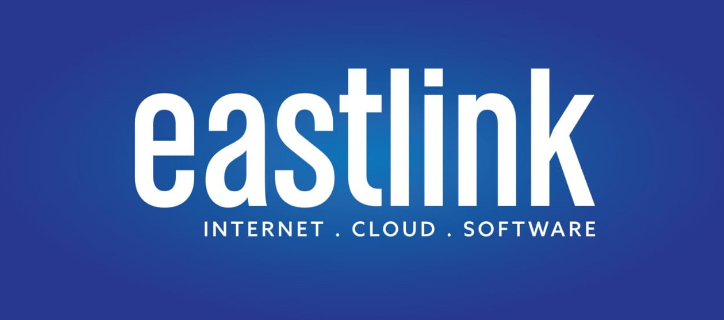Most people start their hosting journeys with a Shared Hosting plan – affordable and easy-to-use. However, as the traffic starts to grow, the website demands a more robust hosting platform that can seamlessly handle the growth. While Cloud and VPS Hosting are good platforms for upgrade, nothing beats the power, isolation and control of a Dedicated Server. In the web hosting business, a Dedicated Hosting Server means that the server is exclusively used by a single user.
With Dedicated Servers, the resources of the server aren’t shared by multiple users. All the resources, irrespective of whether they’re being used or not at any given moment, are entirely dedicated to a single user.
Given that all the resources are allocated to a single user or a single website, Dedicated Servers can handle sustained high traffic with ease, making them the ideal choice for large websites.
Another important advantage that Dedicated Servers offer is near-infinite customization. When all the resources are allocated exclusively to a single website, you get complete freedom to set up your server to your exact specifications.
This freedom can help you achieve two important goals — speed and security. This article explores some of the most important security upgrades that you can do to your Linux Dedicated Server.
Steps to Secure Linux Dedicated Server
- Consider cloud-based, third-party security application
Web hosting companies that own their servers usually have a few security measures built into the servers. However, given the fact that cyber-attacks are on the rise and that they’ve gone up exponentially since the COVID-19 pandemic, using a third-party security application is a good idea.
Security applications like Sitelock Website Security, for example, are entirely cloud-based and are specifically designed for cost-effective protection against cyberattacks. Applications like Sitelock are several tools rolled into one. These tools are developed so that they work together seamlessly, making up a complete security solution that can protect your websites.
These applications usually have malware scanners, malware removal tools, blacklist monitoring, active blocking, enterprise-level antivirus, an advanced notification system, and much more, making them a one-stop-solution for your website.
- Install SSL certificates
SSL certificates or Secure Sockets Layer certificates are issued when it can be verified that you are indeed the website owner for a given website and you also own a business associated with the website.
SSL certificates encrypt all data that are uploaded by a user to your web server, making MitM (Man in the Middle) cyber-attacks completely redundant.
SSL certificates also create more trust around your website and your brand. When you buy an SSL certificate, a green lock appears to the left of your website URL that tells your viewers that your website is safe. Additionally, the URL of your website changes from HTTP to HTTPS (S stands for secure).
Finally, any website that does not have an SSL certificate now brings up a security warning from Google Chrome, one of the most popular web browsers in the world. The warning very clearly states that your website is not safe. Any warning of this nature is bound to drive customers away.
- Server port management
As mentioned earlier, one of the most important advantages of having a Dedicated Server is that you can change all settings and configurations. One of the most crucial changes that you need to make concerns server ports.
Ports are the communication points of a server. They are a channel through which information or instructions can be sent to a server. An open port means that it’s an active port that is open to receiving instructions.
Close all open ports that you aren’t using. Open ports are often targeted by hackers to inject malicious code into your network. By default, some ports are left open. Minimize your risk exposure by closing all open but unused ports.
Next, change the default port numbers. More attacks are carried out by bots today than ever before, and one of the biggest facilitators to this is the fact that most people leave their servers in the default settings.
Simply changing port numbers makes your server much harder to target. For example, by default, the listening port for SSH is 22. Just change the port number, and you’re done. It’s an easy task, and there are plenty of handy guides available online.
- Update your OS and applications regularly
Updates carry important security patches and fixes to problems that are constantly being discovered. Irrespective of which Linux distro you’re using or what applications you have on your servers, updates are crucial to the security of a network.
- Only use trusted devices to log in to your server
The best way to do this is to simply not access your server from devices that aren’t yours. Also, do not use public WiFi networks when you’re logging into your server.
Login information, financial transaction details, user data — they’re all at risk when you access your server from a device or a network that is not secure.
Additionally, even when you’re using your own devices, make sure that those devices are virus and malware-free. Installing antivirus software for your personal device is never a bad idea.
- Check your PHP settings
PHP always has a whole host of services running to ensure that your website functions smoothly. While most of them are crucial, some simply aren’t and are known to create problems.
Some of the common services that are open at all times but shouldn’t be are:
- Allow_url_include
- Register_globals
- allow_url_fopen
The process of disabling them is really simple, and again, there are plenty of easy-to-follow online guides that you can follow. Check out these HostGator links for support:
Conclusion
Dedicated Servers are powerful and secure hosting solutions. Their security and performance can be improved with just a few simple steps.
The best way to ensure server safety is to partner with a web hosting company that has a demonstrable and proven history of offering secure hosting servers. It’s usually best to work with industry leaders.
Eastlink offers Solid State Drive (SSD) powered Dedicated Hosting Servers with complete root access and quick server provisioning. Also, get 24×7 expert system administrator support to efficiently handle and quickly resolve all your queries.
Once you partner with Eastlink for your Dedicated Server needs, you can stop worrying about security and can concentrate on growing your business.












